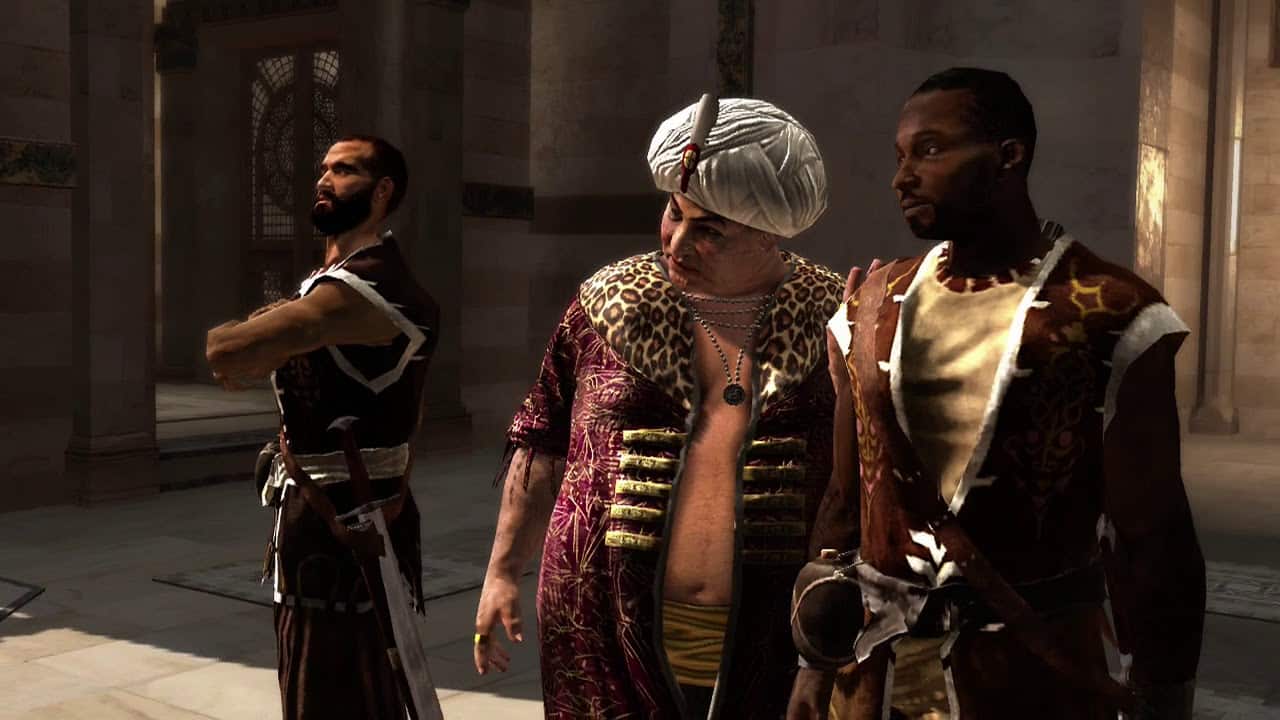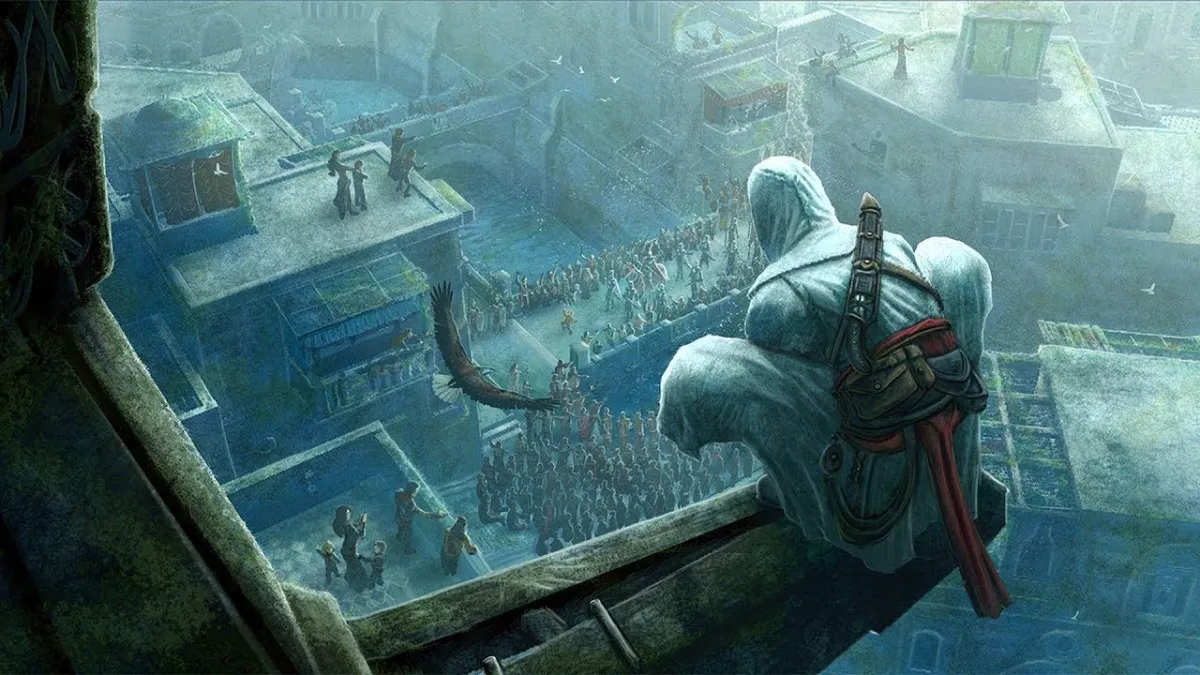Ubisoft last year released the twelfth major game in the Assassin’s Creed series, Valhalla. The series has chugged along since the first game was released in 2008, and while the journey has had its bright spots, there’s one thing the series has been slowly losing: good, coherent writing.
While each individual game may have a perfectly adequate story, we lost any sense of overarching plot a long time ago. And that sucks because the first game’s writing showed such promise. In fact, I’d go so far as to say the writing in the series hasn’t been truly good or shown so much potential since that first game.
Say what you will about the original Assassin’s Creed, but it actually attempted to deliver on a larger Assassin vs. Templar conflict — a war between two morally ambiguous sides who actually believed in something. The dying speeches of Altair’s victims, while somewhat awkwardly acted, still sound more interesting and speak of more internal character than just about anything that came out of Kassandra’s or Arno’s mouths:
“You’d kill us all, for no other reason than it was asked of you… Do you see the irony in all this? No, not yet it seems. But you will.” — Talal
“You take the lives of men and women, strong in the conviction that their deaths will improve the lots of those left behind. A minor evil, for a greater good? We are the same.” — Abu’l Nuqoud
“We’ll see how sweet they are, the fruits of your labors. You do not free the cities as you believe, but rather damn them. And in the end, you’ll have only yourself to blame. You, who speak of good intentions.” — William of Montferrat

Particularly, the long exchanges between Desmond and Templar Warren Vidic in the first Assassin’s Creed, while poorly directed, (Making the player stand still and listen to the two is a terrible way of delivering exposition.) at least attempted to sell the idea that both sides had ideologies:
Vidic: Your ancestors almost had the right idea, Mr. Miles. If the deaths of a few people — evil people, no less — could save the lives of thousands more, well, it seems a small sacrifice.
Desmond: What do you mean, “almost”?
Vidic: They didn’t go far enough! To use a rather tired analogy, corruption is no different than cancer. Cut out the tumors, but fail to treat the source and, well, you’re buying time at best. There’s no true change to be had without comprehensive, systemic intervention.
Desmond: Chemo for the masses.
Vidic: Education. Re-education, to be more precise. But it’s not easy, and it doesn’t always take.
Desmond: Let me guess — you’ve got a better solution. What is it then?
Vidic: Now that would be telling.
The post-Unity Assassin’s Creed games have had their moments, but none have come even close to saying anything so definitive about either side. Instead, they’ve become preoccupied with showing us literally anything but that.
Part of the problem is that the series has increasingly focused on the Precursor race and their Piece of Eden artifacts. This means that the actual conflict that was at the heart of the series — the Assassins vs. the Templar Order — not only hasn’t been elaborated on, but it hasn’t even been addressed in quite some time.

We’re 12 games into the series, and they have yet to tell us what the Templars want. Not the historical Templars or the Order of the Ancients, organizations largely staffed by Saturday morning cartoon villains, but the modern Templar Order. What is its endgame, as an organization? Or for that matter, what is the Assassin goal? What do they do or want that doesn’t involve cleaning up after the Templar group du jour?
When was the last time one of them said the Assassin’s Creed? Or examined what it meant? Interpreting the Creed was a mainstay of the series for the first four Assassins or so, but then they seemed to forget about it after Edward’s pirate adventure.
Maybe I could offer one small suggestion for how the series could get back on track. Ubisoft has shown us a character who could be a perfect introduction to the modern Assassins and what they’re up to — a character who doesn’t even appear in Assassin’s Creed.
In Watch Dogs: Legion, the backbone of the gameplay is the ability to select any random Londoner and recruit them into your posse. Ubisoft is monetizing that by offering the ability to bring characters from other Ubisoft universes into DedSec via DLC, including the previous Watch Dogs games and the Assassin’s Creed series. Granted, they can’t bring in any of the Assassins you’ve met previously, as most of them are historical figures who would be pretty conspicuous strolling up a modern London street (or at least, I’m assuming that’s the internal logic). So they had to create a new, modern, British Assassin for you to play:
Meet Darcy. She’s a member of the modern British Assassin order, and we know nothing about her other than what little has been shown in Ubisoft’s pre-release video. But looking at her concept art is enough to fire the imagination. She’s recognizably an Assassin, styled in that curious “hackpunk” way typical of Watch Dogs, with an absurdly long hidden blade on the one hand and a… I want to say flare?… in the other.
I’m not saying Ubisoft should make this random Watch Dogs DLC character a main character in the next Assassin’s Creed game. But she could at least tell us something about the Assassins in the modern day: the weapons they use, how they incorporate social stealth into crowds, maybe what role technology plays in their adventures.
Surely in the information age, the conflicts between order and freedom that the Assassins and Templars represent would be grayer and more complicated than ever. So show us that conflict, Ubisoft. Use Darcy — or anybody, I’ll accept anybody — to tell it and give this series back the interesting philosophical edge it had in the beginning.
Or, you know, we could have another very stabby episode of Where in Time Is Carmen Sandiego? and neglect any kind of meaningful modern narrative to play as Layla again. I know which one I would prefer.






Published: Jan 9, 2021 11:00 am